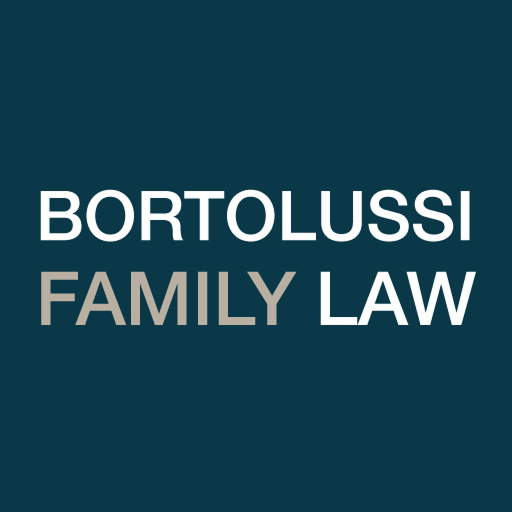Judicial Notice and Parenting Disputes Over the Covid-19 Vaccine

In many court cases over the last two years between divorced or separated parents who disagree on whether to have their child vaccinated against COVID-19, courts have often reached similar decisions. In most cases, the courts have opted to grant decision-making authority, as it pertains to medical decisions, to the parent seeking authority to have their child vaccinated over the objection of the other parent.
In many of the decisions which have granted such authority to the parent who wanted to vaccinate their child, the court in question had taken judicial notice of certain facts prior to reaching the decision. In other words, the court had accepted certain information regarding the safety and efficacy of the approved COVID-19 vaccines as fact without further need to lead expert evidence or corroboration.
Recently, some Ontario courts have seen judges less willing to take judicial notice of the vaccine information tendered as evidence. This has resulted in decisions that have gone in a new direction. The most recent decision, M.M. v. W.A.K., includes commentary from the court on the issue of judicial notice. This change regarding judicial notice could impact similar decisions going forward and may result in the onus shifting from one party to the other in parenting disputes related to the COVID-19 vaccine.
What is Judicial Notice and How Can it Impact a Court’s Decision?
The doctrine of judicial notice is the idea that certain information is so clearly accepted as fact by most reasonable people that it does not need to be corroborated by additional evidence in a proceeding. Judicial notice helps to expedite legal proceedings, as it provides an exception to the principle that cases must be decided based on relevant and admissible evidence presented by each party to the court to establish each fact that they wish the court to rely on.
The doctrine has played a major role in many parenting cases involving COVID-19 vaccine disputes between parents as decision makers for their children. Ever since the vaccines have been made available for children, courts have generally taken judicial notice of the information provided by the federal and provincial governments and public health authorities with respect to the efficacy and safety of the vaccines.
An example of judicial notice in parenting disputes regarding the COVID-19 vaccination can be seen below, in a decision from Justice Finlayson of the Ontario Court of Justice in B.C.J.B. v. E.-R.R.R.:
“I am prepared to take notice of the following adjudicative facts. Ontario’s publicly funded vaccines are safe and effective at preventing vaccine preventable diseases. Their widespread use has led to severe reductions or eradication of incidents of these diseases in our society…I find these facts to be so notorious as not to be the subject of dispute among reasonable persons. They are also capable of immediate and accurate demonstration by resorting to readily accessible sources of indisputable accuracy…I do not rely on any particular statement made by an expert in any particular case to take judicial notice. Rather the case law, read as a whole, reflects the reality there is no debate in the medical community about the facts about which I am prepared to take judicial notice.”
Judicial Notice of Covid Vaccine Information: Is the Tide Changing?
Many of the early cases deciding on parental disputes over whether to vaccinate children against Covid-19 saw courts taking judicial notice of the data presented by the government, and by various appointed health authorities across the country. However, in more recent decisions, some judges are displaying a reluctance to accept this information as fact.
In the case at hand, the applicant father sought an order that the respondent mother have the parties’ 12-year-old daughter vaccinated against COVID-19. The mother, while not opposed to the vaccination, did not want to force her daughter to get immunized against her will. The daughter had repeatedly and adamantly expressed her choice to remain unvaccinated, after reading about the efficacy of the vaccine, as well as potential health risks. The father claimed she was not mature enough to make her own decision in this regard and asked the court to take judicial notice of the various information provided by the provincial government, as well as the public health agency, regarding the safety and efficacy of the vaccine.
The judge referenced concerns expressed in other recent decisions by fellow Ontario Superior Court of Justice judges Breithaupt Smith J. and Pazaratz J., both of whom had been critical of the willingness of courts to accept government-issued information as fact.
As Breithaupt Smith J. stated, courts may not take judicial notice of expert opinion evidence, which is precisely what much of the information provided by the government and public health agencies amounts to. Judicial notice may only be taken of information that is indisputably a fact. The judge acknowledged that while the court could take judicial notice of the fact that a certain number of children had died as a result of contracting COVID-19, information related to the efficacy and/or the safety of the vaccine is expert opinion evidence and would not qualify under the doctrine.
Further, Pazaratz J. highlighted the fact that the government has not always been correct in the information it has provided to the public on various subjects, citing historical examples such as the Residential School System, Japanese internment camps, and the use of Thalidomide for pregnant women. In agreement, J.C. Corkery J., in the case at hand, said of the government-issued vaccine information, “I cannot find that these scientific facts are notorious or that the government is a source of indisputable accuracy”.
The court also pointed out that, even if it were to take judicial notice about the general safety and efficacy of the vaccine, it had no way of knowing how the vaccine would impact the specific child involved in the case. The court also noted that the child in question was 12 years old and had expressed her wishes in a very mature fashion after looking into the issue herself. As a result, the court declined to impose an order that she must be vaccinated and dismissed the father’s application.
Based on this case and the others before it, it would seem that the Ontario Superior Court of Justice may no longer be willing to take judicial notice of the standard, government-issued information regarding the safety and efficacy of the COVID-19 vaccines. As a result, parents may need to be prepared to provide their own expert evidence in cases in which this issue is a factor going forward.
Contact the Divorce Lawyers at Bortolussi Family Law in Vaughan for Parenting Disputes
At Bortolussi Family Law, our divorce lawyers have over 145 years of combined experience helping clients to navigate a variety of parental disputes. We work to find a solution best suited for each client’s family allowing them to more forward productively post-separation with their children(s)’ best interests in mind. From our office in Woodbridge, we assist clients from across the Greater Toronto Area with all aspects of the separation and divorce process including parenting time, parental decision-making, and the creation of comprehensive parenting plans.
To discuss your circumstances and learn about the options available to you, feel free to contact us online or by phone at 416-987-3300.
